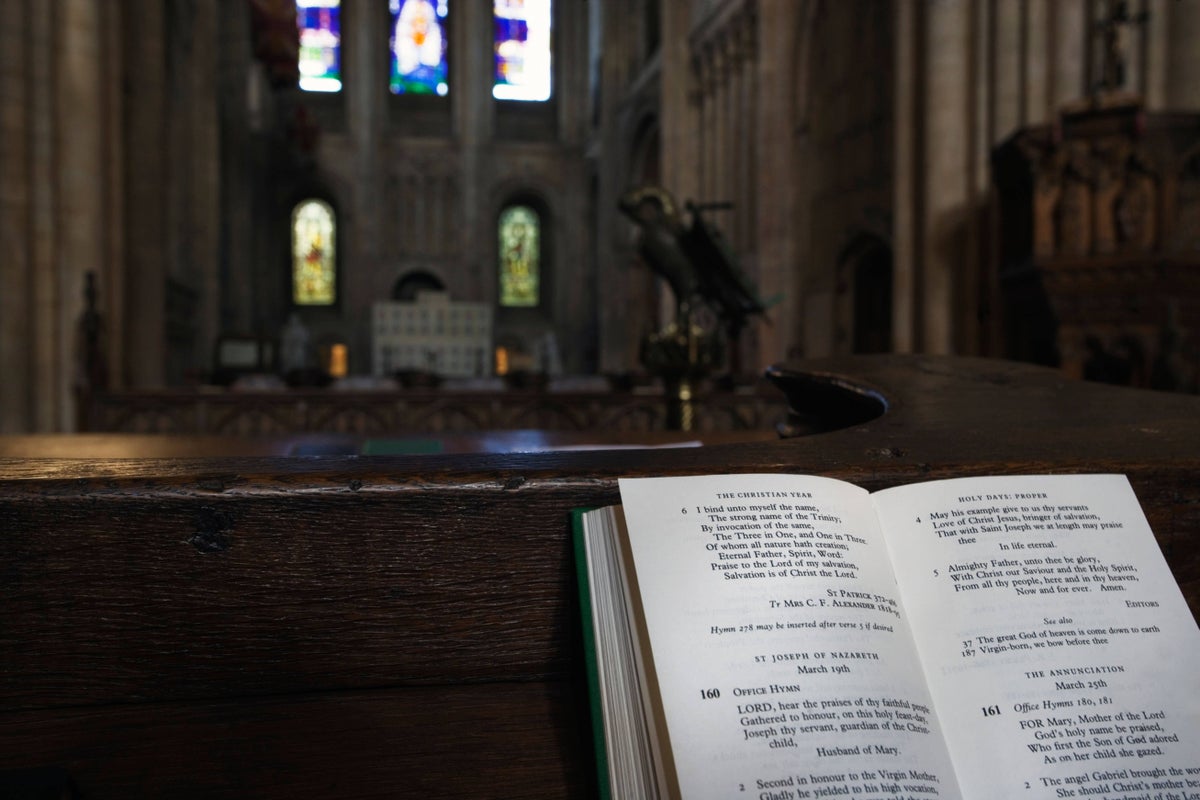
Less than half of England and Wales’s population identify as Christian, census figures have revealed for the first time, prompting calls for the role of religion in society to be reconsidered.
Some 46.2% of the population described themselves as Christian on the day of the 2021 census, down from 59.3% in 2011, the Office for National Statistics (ONS) said.
It is the first time the proportion has dropped below half.
Over the same period, the percentage of people saying they had no religion jumped from 25.2% to over a third in 2021 (37.2%).
This was the second most common response and the number ticking this box has almost trebled since 2001.
The Archbishop of York said the decline in people identifying as Christian is “not a great surprise” but acknowledged it “throws down a challenge”.
The Most Rev Stephen Cottrell said: “We have left behind the era when many people almost automatically identified as Christian but other surveys consistently show how the same people still seek spiritual truth and wisdom and a set of values to live by.”
Humanists UK, which ran a campaign ahead of the two most recent censuses encouraging non-religious people to tick the form’s “no religion” box, said the result should be a “wake-up call which prompts fresh reconsiderations of the role of religion in society”.
Chief executive Andrew Copson said: “These results confirm that the biggest demographic change in England and Wales of the last 10 years has been the dramatic growth of the non-religious.
“They mean the UK is almost certainly one of the least religious countries on Earth.”
We have left behind the era when many people almost automatically identified as Christian but other surveys consistently show how the same people still seek spiritual truth and wisdom and a set of values to live by.— The Most Rev Stephen Cottrell
The National Secular Society said the figures show aspects of society, such as the Anglican establishment and daily prayers and worship in parliament and schools, are “all inappropriate, hopelessly outdated and fail to reflect the country we actually live in” and called for reform.
Chief executive Stephen Evans said: “It’s official – we are no longer a Christian country.”
He added: “The current status quo, in which the Church of England is deeply embedded in the UK constitution, is unfair and undemocratic – and looking increasingly absurd and unsustainable.”
Deborah Weston, from the RE Policy Unit, said ticking ‘no religion’ “does not mean that person does not reflect on the big questions in life”.
She said: “In light of this, we need religious education in schools to reflect the pluralistic, diverse and often complicated belief in modern Britain – where a worldview may be made up of both religious and non-religious ideas.”
The religion question was voluntary on the 2021 census but answered by 94% of the population of England and Wales, up from 92.9% in 2011, the ONS added.
There were increases in the proportion of people describing themselves as Muslim (up from 4.9% to 6.5%) and Hindu (from 1.5% to 1.7%).
In a third of households (32.7% – 8.1 million) all members reported the same religion, while 13.7% (3.4 million) have a mix of religious and non-religious people and in 1.1% (285,000) at least two different religions were reported.
In a fifth of households (20.4% – 5.1 million) all members said they had no religion.
London remains the most religiously diverse region of England, with just over a quarter (25.3%) of people on the day of the 2021 census reporting a religion other than Christian.
South-west England is the least religiously diverse region, with 3.2% selecting a religion other than Christian.
In two in three local authorities (218) fewer than 50% of people described themselves as Christian.
Brighton and Bristol are among eight local areas of England where less than a third of the population identified as Christian.
Leicester and Slough have a similarly low proportion, together with four London boroughs: Camden, Hackney, Redbridge and Tower Hamlets.
The 2021 survey, carried out last March 21, was filled out by more than 24 million households across England and Wales.
The data released on Tuesday covers ethnicity, religion, national identity and language.
It also found that:
– Some 81.7% (48.7 million) of usual residents identified their ethnic group as white, a decrease from 86% (48.2 million) in 2011;
– In 2021, 91.1% (52.6 million) of usual residents aged three years and over had English (English or Welsh in Wales) as a main language; and
– 90.3% (53.8 million) of usual residents identified with at least one UK national identity (English, Welsh, Scottish, Northern Irish, British and Cornish).
The census takes place across the UK every 10 years and provides the most accurate estimate of all the people and households in the country.
More data will be published in stages over the next two years.







